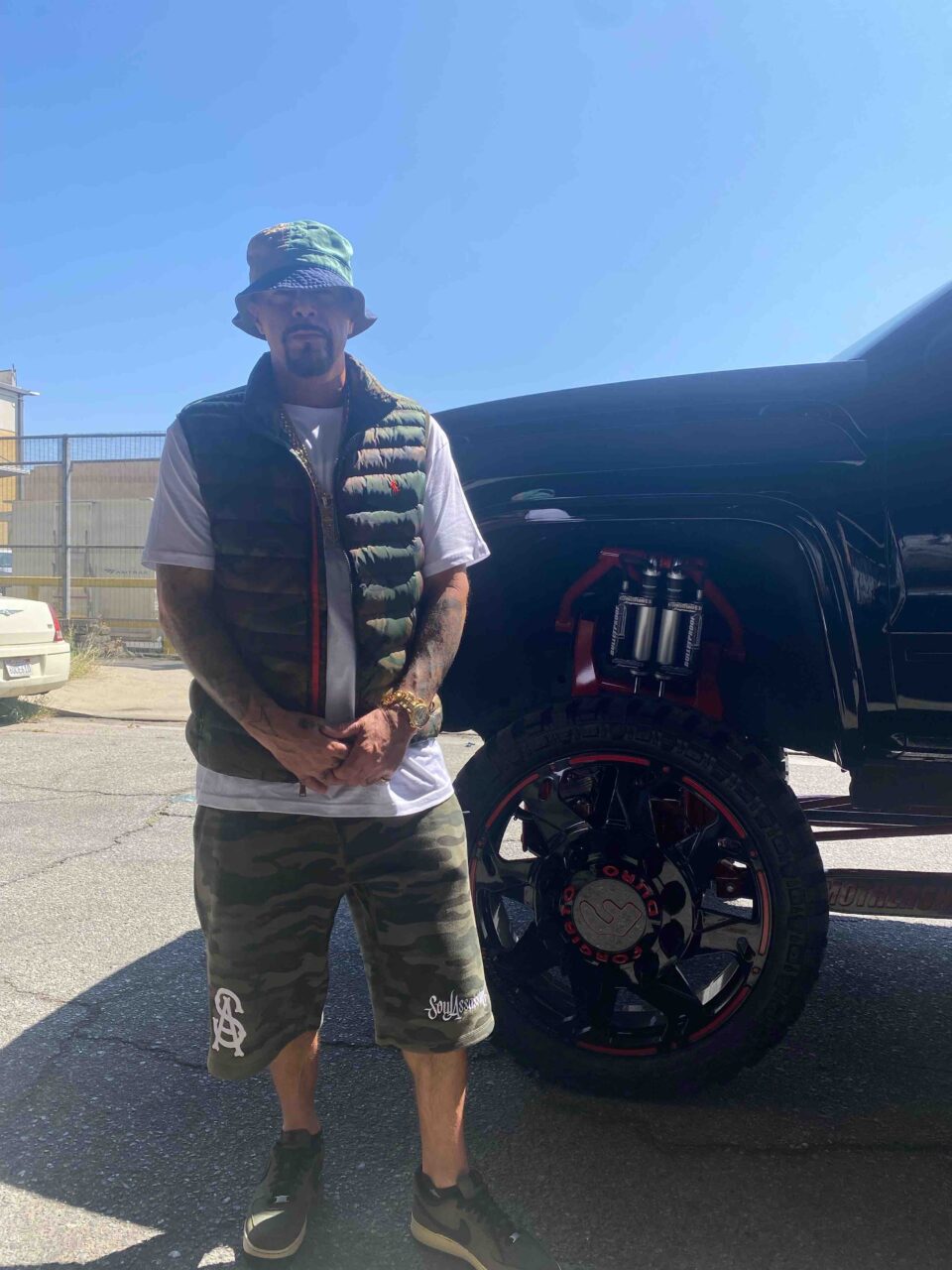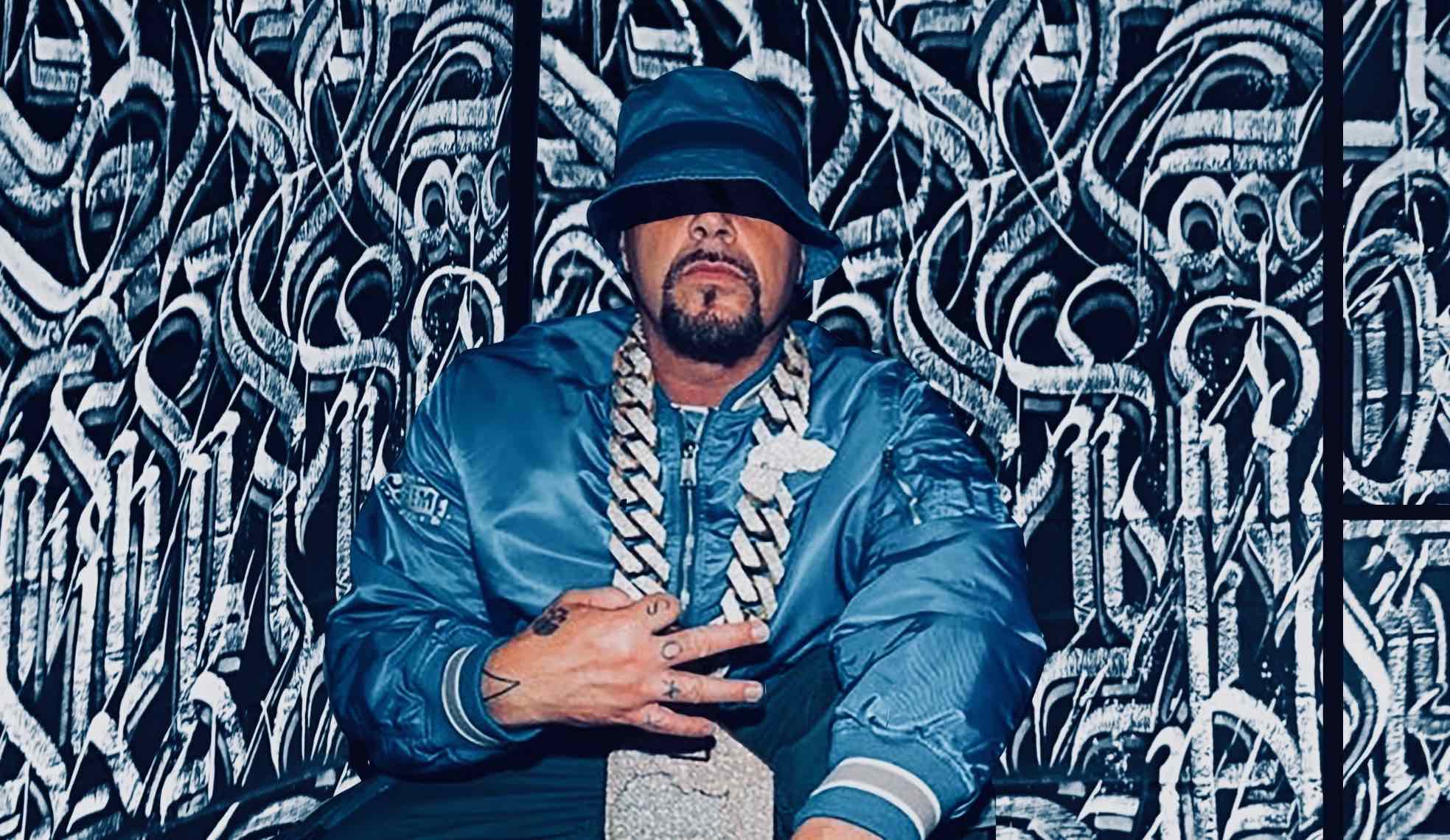DJ Muggs changed rap. His sometimes-psychedelic, sometimes-riotous soundscapes for Cypress Hill and other projects introduced a distinctively dusty sound to the genre over three decades ago. Since breaking through in 1991, the Los Angeles–based producer has also crafted ubiquitous hits for House of Pain (“Jump Around”), Ice Cube (“Check Yo Self”), and others, and released a string of stellar collaborative albums with artists including GZA/The Genius, Sick Jacken, and Planet Asia.
Another feather in Muggs’ artistic cap is his Soul Assassins album series launched in 1997 on which he produces the projects and partners with a wide range of artistic collaborators. The third and latest edition, subtitled Death Valley, just arrived on DSPs and features established greats such as Slick Rick, Method Man, and Scarface, as well as more contemporary underground stalwarts including Roc Marciano and Boldy James.
As DJ Muggs prepares for the release of his accompanying Soul Assassins 3: Death Valley film, he’s also looking forward to his next batch of projects. In our Q&A, Muggs reflects on what’s in the pipeline, the evolution of rap’s relationship with drugs, why he’s excited about up-and-coming rapper T.F, and planting Easter eggs throughout the Soul Assassins series.
Throughout Soul Assassin 3, there’s a heavy drug component. How have you seen the perception of drugs in music change since 1991 when Cypress Hill was first breaking through?
In 1991, weed was the fuckin’ devil. We were going to jail for lighting up on stage and getting banned from Saturday Night Live. People wouldn’t play our songs because we talked about weed. The culture has opened up, obviously. Cannabis is legal everywhere now. In songs, people are talking about everything.
As for the drug in the movie, I didn’t want to use cocaine. I think that’s boring. It’s what everybody’s already done, and you ain’t gonna make a movie better than Scarface, better than the Frank Lucas movie with Denzel [American Gangster]. I didn’t want to use weed. Cypress has been moving weed since before we made records. We just didn’t come on records talking about being drug dealers, like everybody is talking about today—these nickel-and-dime McDonald’s muthafuckas acting like they were kingpins. They weren’t. They live in a rented apartment with a rental car, so shut your ass up.
“It’s like Pink Floyd with hip-hop elements. That’s how I describe this film.”
Cypress has been moving pounds for years, and now we’re in the legal cannabis business, so I wanted something different. The drug in the movie is a fictional drug. We said it’s a synthetic drug that was created in India, but it’s actually THCa, which is pure weed—100 percent THC worked down to its purest compounds. You just mix it up with your weed and it makes your weed stronger.
So much of the Death Valley music is forceful, but in the film you’re spaced out at times. How did you balance that?
The film has a psychedelic component because it’s the first psychedelic hip-hop film, period. It’s groundbreaking. We came out with cannabis and changed the rap game. Now you see in the streets, everybody’s finally getting into shrooms. People are microdosing shrooms. We’ve been into shrooms for years, so it’s the first shroom film. It’s like Pink Floyd with hip-hop elements. That’s how I describe this film. When you look at the film, it starts where it ends and it ends where it starts. It takes place in the year 2027, so it hasn’t happened yet. But even when you’re in the film, it’s like, “Did it even happen?” It’s more of a psychological thing. I leave it up to your imagination. I try to paint a basic picture for you and tell you, “This is it.” A lot of times when I watch movies, they give the whole movie away in the trailer.
“I try to do these really subtle Easter eggs where I pulled a few things from the first record and put them into this record.”

I know you’re always looking forward. What else do you have coming up?
When I’m done promoting Death Valley, I’m going to go on tour. I’ve also got about 19 projects in the kitchen right now. Next year, the first things that we’re going to lead with are going to start with my boy T.F We’ve got about 15 joints, but we need to add a few things, finish up with the features. He’s my favorite muthafucka coming out of the West Coast. He’s the next dude to me, and the whole crew’s behind it.
You’ve worked with so many artists, what’s special and different about T.F?
He’s a dope rapper. That’s the easy part—but it’s just one part of the whole thing. He’s got the intangibles because being a dope rapper isn’t enough. He’s a good human being. He works hard. He’s disciplined. He’s got class. That’s the type of human being I want to be around. He’s the type of muthafucka that’s like us and lives by the same codes as us. He doesn’t just talk the game, he lives the game. He’s like one of my brothers.
One of my favorite lines of T.F’s on Death Valley comes on “Shell Casings” when he says, “Don’t play hero, you’ll get shot.”
Yeah, that’s a good one. It’s funny because if you notice, I tuned his voice so that he sounds like two people. Then I wanted to put in a chorus. It made me think of the MC Eiht song from the first Soul Assassins album, “Heavy Weights.” I told T.F, “Do the same flow as him.” T.F used the same shit. I try to do these really subtle Easter eggs where I pulled a few things from the first record and put them into this record.
“Back then, there were a few dope muthafuckas that made beats. Now there’s a thousand kids that make incredible music. You don’t really have to go hunt for records like you used to.”
It’s interesting that you were able to pull off Soul Assassins on Columbia Records back in 1997, making such an underground, off-the-beaten-path album, and that you’re still making them today.
At that time, there weren’t DJ records like this. There were a couple of compilations, maybe. But it was pre-mixtape era. Soul Assassins was a groundbreaking record at the time. There were records on there without drums. Everybody’s on that craze right now, but I tell everybody that on the first Cypress album, with “Tres Equis” and “Born to Get Busy,” that they didn’t have drums. “New York Undercover” on Soul Assassins didn’t have drums, either. It’s something that we definitely tapped into.
Things have changed, though. Back then, there were a few dope muthafuckas that made beats. Now there’s a thousand kids that make incredible music. You don’t really have to go hunt for records like you used to. They’re just all over the internet. We also had to clear samples. All these kids, they don’t clear anything anymore. Today, shit’s a lot easier. It’s a reason why it’s easier to thrive right now. FL







